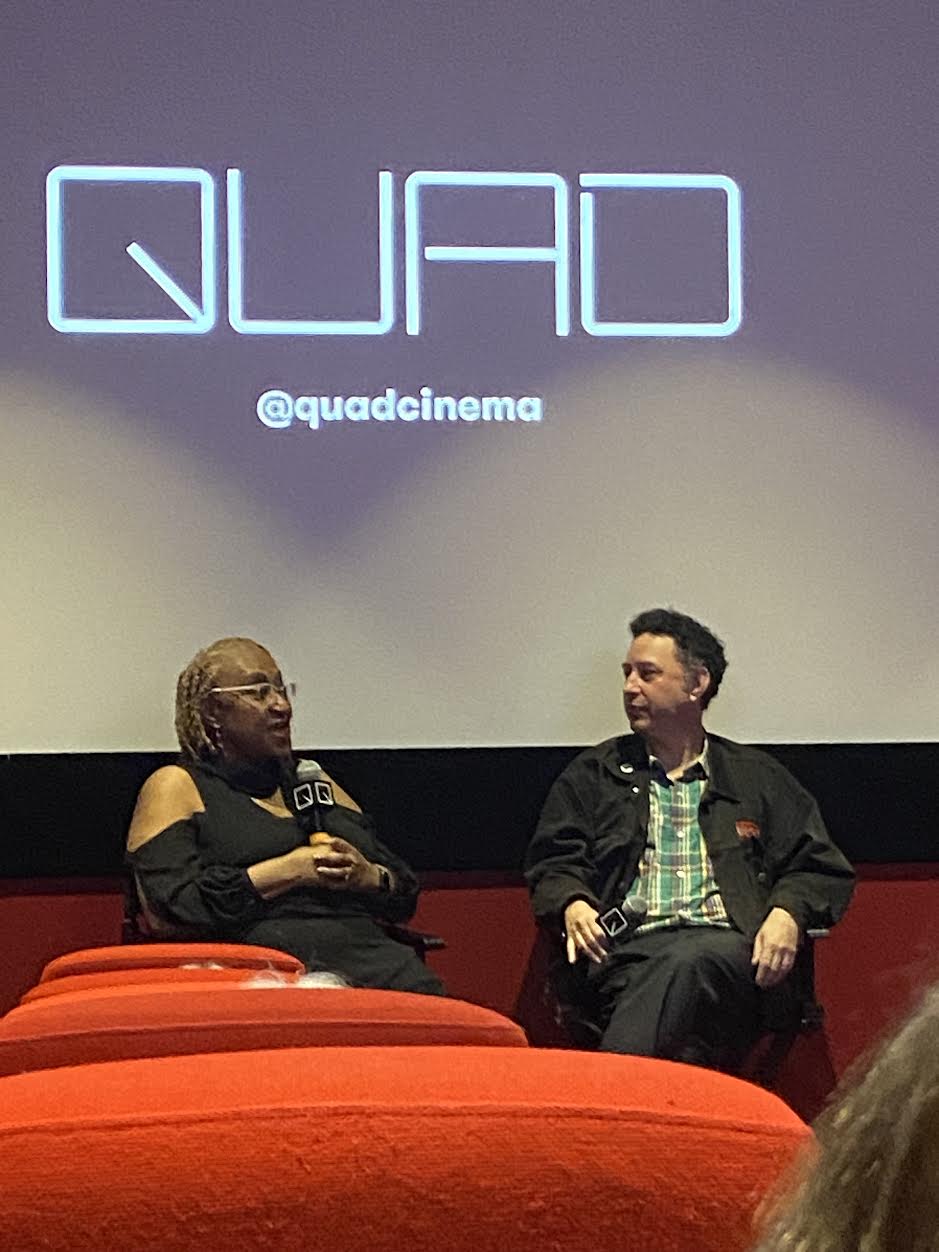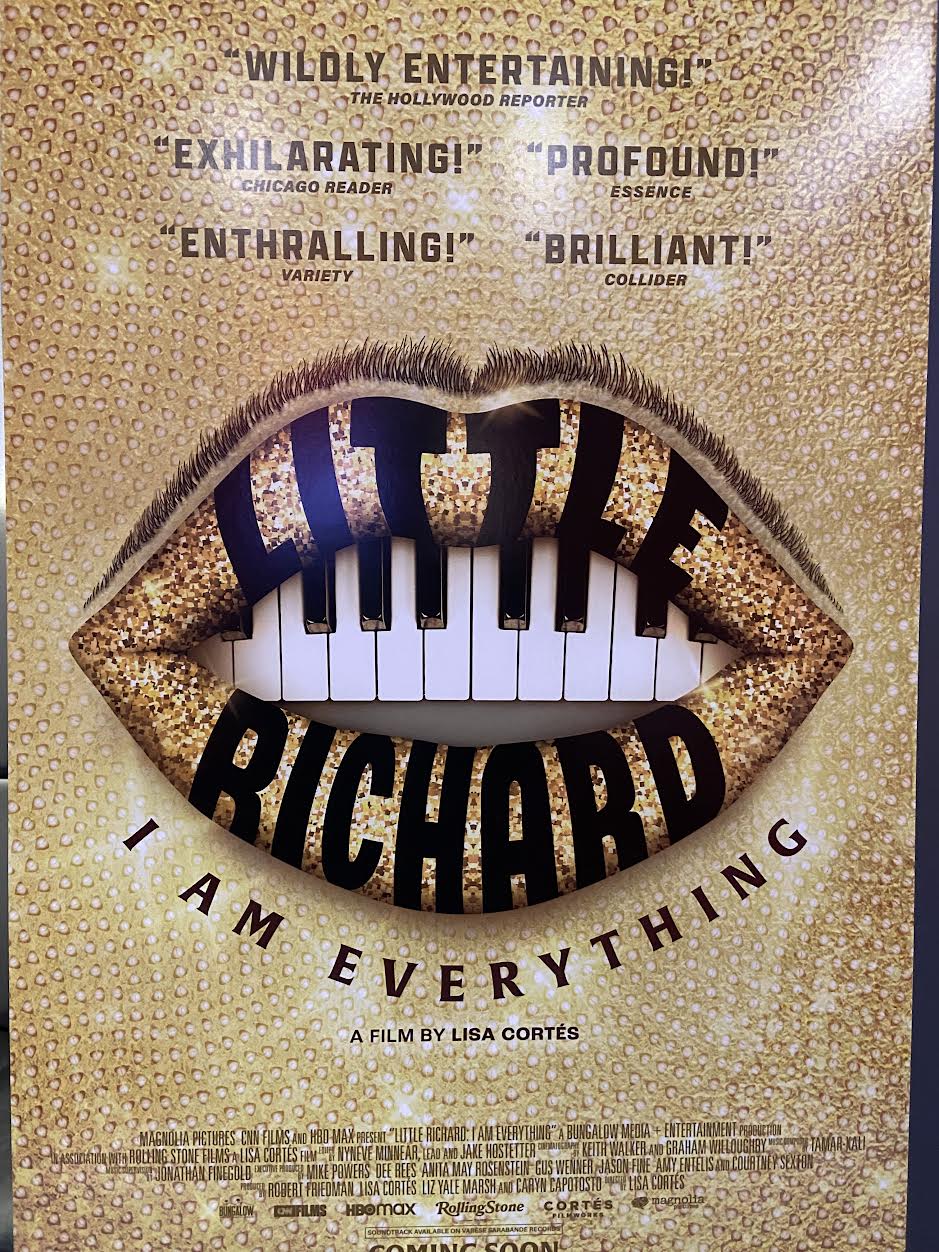I’ll admit that before I saw the Little Richard: I Am Everything documentary, my shortsightedness only allowed me to see the caricature he put forth in the media, not the multi-talented, compassionate, multi-dimensional person. Sadly, I didn’t realize he created this fanciful, rhinestone-encrusted facade so that he could do what he loved – entertain people of all colors.
Little Richard’s story is a sad commentary on American Life. The adult black man must be neutered and robbed of their masculinity and sexuality, and depth of skin tone to appeal to a mass audience. This isn’t new news, but watching Little Richard’s life unfold, and his struggles to be an entertainer is heartbreaking. The lack of respect and acknowledgment for creating Rock n’ Roll would make anyone angry. That he frequently ended a heartwrenching declaration of being done wrong by society with a belly laugh and a high note is incredible.
The film makes you wonder how race, gender, and sexuality affect your journey in life. Why should I feel threatened by a strong, masculine black male? Why does my sexuality as a gay or bisexual man make me more appealing to the mainstream but less respected?
It’s easy to see that the stage was where Little Richard felt he could be himself. He was the supernova he claimed to be. How else could he have survived his terrible upbringing and created a long-lasting legacy if he was anything less? Little Richard makes you believe anything is possible. Throughout his life, he overcame many obstacles that would have stopped most people, including me. I am glad someone as talented and compassionate as the Academy Award-nominated and Emmy-winning film producer and director Lisa Cortés told his story. However, after watching her documentary, I can honestly say that his life is worthy of a series of documentaries. He led so many different and exciting lives in one lifetime.
“There was really no one like him,” says Cortés of the flamboyant pioneer.
Her film follows Little Richard from his childhood in Macon, Georgia, through the many ups and downs of a long and storied career. It adeptly reveals the layers that influenced the person who became the performer no one could ignore. It is also the story of rock and roll’s birth, queer culture, and being a Black gay man in America.
One of my big takeaways was learning about the singer, songwriter, and pianist, Esquerita, known for his frenetic performances. Little Richard credits him, along with Marion Anderson and Mahalia Jackson, for influencing his music, singing, piano playing, and electrifying performing style.
My big takeaway from the documentary was Little Richard’s lifelong struggles with his sexual identity and financial compensation. I left the theater wondering if he ever had a fulfilling relationship with a man and whether he was fully compensated for his early hits.
His early life growing up in Macon, Georgia, was heartbreaking.
Little Richard’s father beat him routinely for being ‘different’ than his other sons. Other boys bullied him. Little Richard dressed in his mother’s clothes and wore makeup and long hair. His father kicked him out of the house at the age of twelve.
Unfortunately, the blame and shame his father inflicted on him are still common today. As much as people like to tell us that things are different, they aren’t for everyone. Many young LGBTQ+ people are not accepted by their immediate family. I found out LGBTQ youth compose 40% of the homeless youth population with one click of a Google search.
Interestingly, wearing makeup helped him to crossover to white audiences. He crafted an appearance to succeed. Because he wore pancake foundation, eyeliner, and mascara, he was considered less threatening to the fathers of white girls than other black male entertainers like James Brown and Fats Domino. He was still arrested in many cities for exciting teenage audiences.
Luther Vandross wore makeup and rhinestones too. Watching the film, I wondered if Luther used rhinestones and mascara to make himself seem less threatening.
We can assume that the same people who found James Brown threatening would find Luther’s six-foot, dark-skinned appearance identical. Luther, like Little Richard, wanted crossover success. Who could blame them? Their white counterparts sold ten times as many albums as they did. In the documentary, Little Richard admits that Pat Boone’s bland rendition sold more copies of Tutti Frutti than he did!
Saying that Little Richard was gay is a cop-out too. He was sexual.
“I had all these orgies going on,” he reveals in the new documentary “Little Richard: I Am Everything.”
He loved both men and women: “I just loved whatever came. You know, I didn’t refuse nothin’ if you knocked on my door and I wanted more. Fo sho.”
In a few interviews on YouTube, he identifies himself as ‘gay,’ but I think bisexual or ‘omnisexual,’ like the phrase Sophie B. Hawkins coined, is probably more on point. Society has a hard time acknowledging that some people love both sexes equally.
Is Little Richard the Architect of Rock n Roll?
Hell, yes! No one did what he did before him. He borrowed from other performers like Mahalia Jackson to create his unique recipe for performing. Every entertainer is subconsciously or consciously influenced by others who came before them. The documentary proves his claims of creating Rock n’ Roll.
There’s also no doubt that his black queerness stopped him from being fully acknowledged. Little Richard would have a bigger imprint on our society if born white. During his lifetime, his music, style, musicianship, and performances impacted everyone from Elvis Presley, the Beatles, and the Rolling Stones to Elton John, David Bowie, and Prince. He deserves much more respect for his contributions.
Fortunately, he found an unlikely ally in Dick Clark, who honored him with the Merit Award at the American Music Awards in 1997. Perhaps Dick Clark, the host of American Bandstand, was more aware than most of Little Richard’s enormous contribution to music.
Little Richard’s religious background, as much as his skin tone, seemed to have stopped society from acknowledging his contributions or enjoying financial compensation. His abrupt departures from performing at various times cost him substantial financial losses. He seemed so deeply conflicted between his rock n’ roll lifestyle and his religious beliefs that he broke recording contracts and signed away the rights to future royalties to his early hits. However, at the height of his fame, Little Richard said he was making half a cent per record sold.
“I looked around and didn’t have any money,” said Little Richard. “Those record companies paid me nothing, you know? Nobody had paid me a dime. All those hits.”
He returned to performing Rock n’ Roll music only when he was desperate for money. The electricity and energy of many of these comeback performances influenced people like the Beatles and Rolling Stones. Mick Jagger admits it too, and Nile Rogers states that Little Richard heavily influenced David Bowie.
Little Richard’s frustrations about the lack of respect from the music industry came to a head at the 1988 Grammy Awards. While presenting Best New Artist with the New York Dolls David Johansen, the legendary musician pointed at Johansen’s pompadour hairdo — a carbon copy of how he wore it in his ‘50s heyday — and remarked, “I used to wear my hair like that. They take everything I get — they take it from me.”
Little Richard passed away in 2020 at 87 following complications from bone cancer.





